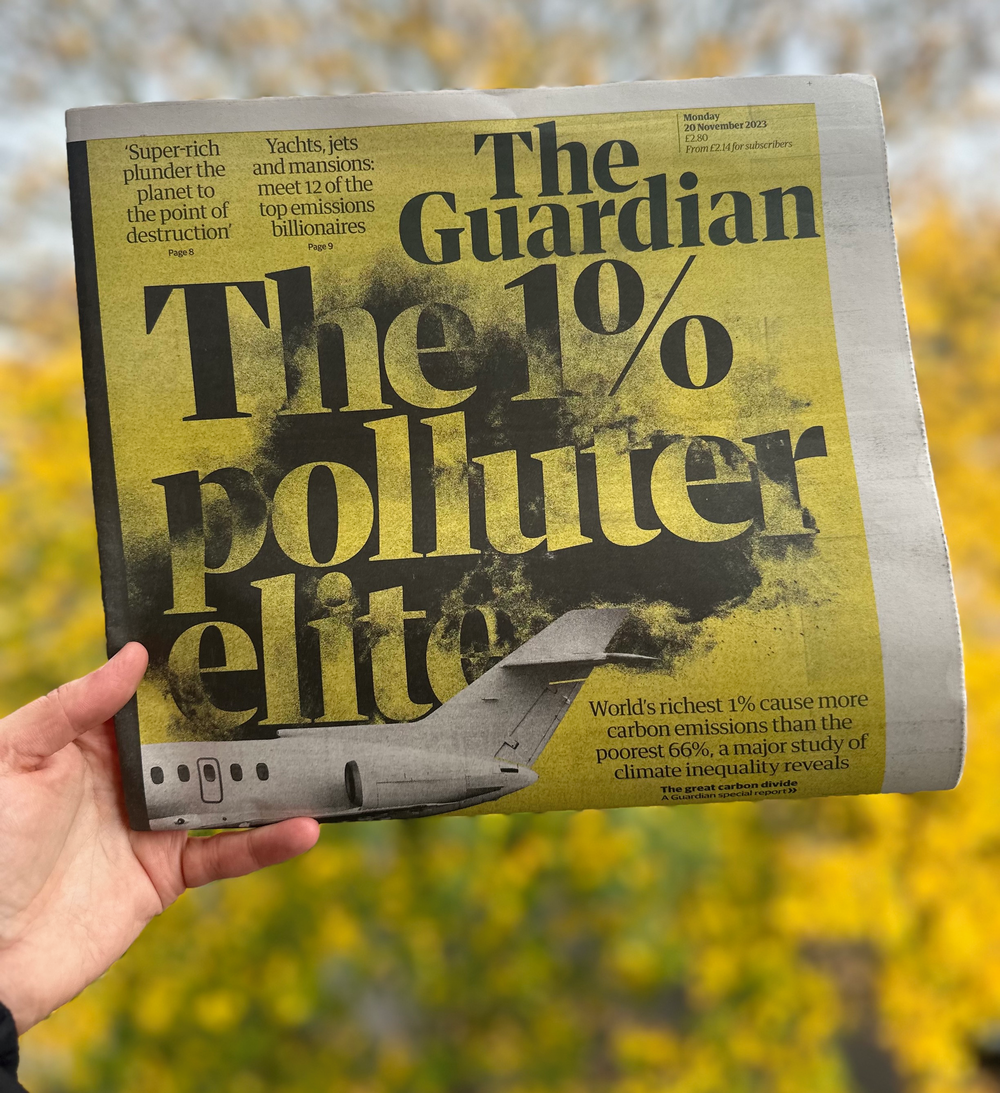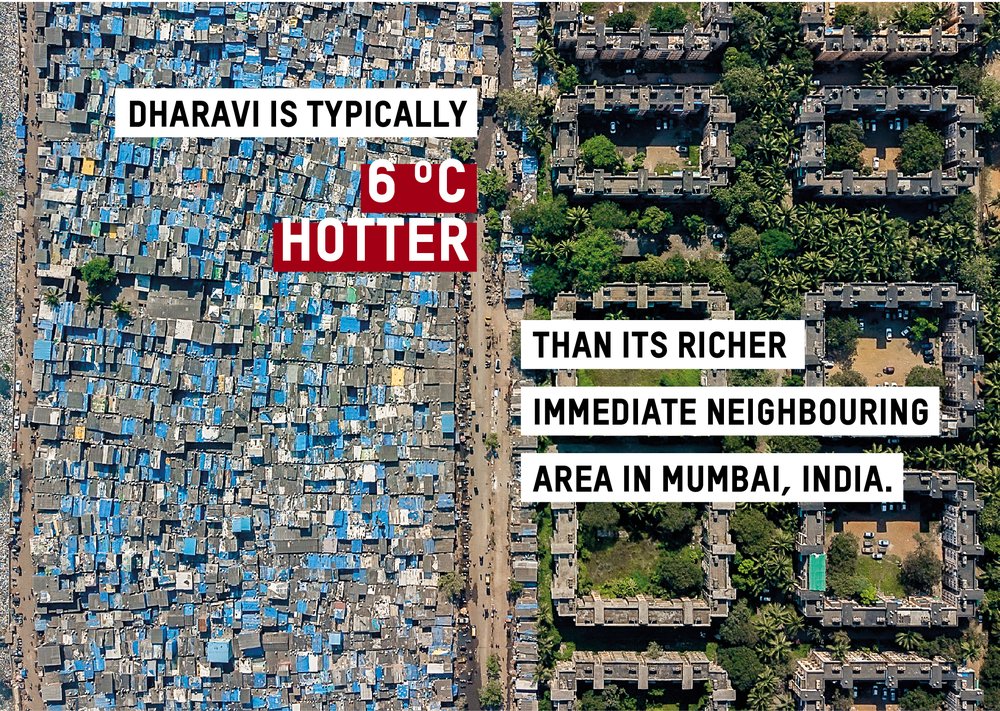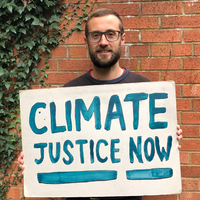Climate equality: A planet for the 99%
The richest 1% emit as much planet-heating pollution as two-thirds of humanity says Oxfam's report Climate Equality: A Planet for the 99%, published ahead of the UN Climate Summit, COP28.
The front page Image: Max van Woerkom/ Oxfam

Front page of the guardian 20 Nov 2023
“For years we’ve fought to end an era of fossil fuels to save millions of lives and our planet. It’s clearer than ever this will be impossible until we also end an era of extreme wealth.”
Oxfam International interim Executive Director Amitabh Behar
Leslie Searles/Oxfam
They appropriated resources, they built empires, it was gold, it was silver, it was rubber, now it is oil and gas.”
Climate activist Pavel Martiarena in Peru.
Emissions inequality
Since the 1990s the richest 1% have burned through more than twice as much carbon as the bottom half of humanity.
Understanding the role of super-rich and rich people (the top 1% and 10% by income) in climate breakdown is essential if we are to successfully stabilise our planet and guarantee a good life for all of humanity.
The super-rich are key to the climate story in three ways:
- Through carbon they emit in their daily lives, through consumption, including from their yachts, private jets and lavish lifestyles.
- Through their investments and shareholdings in heavily polluting industries and vested financial interest in the economic status quo.
- Through the influence they have over the media, the economy, and politics and policy making.
As a result, they are robbing the rest of humanity of life on a healthy, liveable and more equal planet.
New research by Oxfam and the SEI examining carbon emissions across global income groups shows just how pronounced this carbon inequality is.
Dharavi is typically 6 degrees hotter than its richer immediate neighbouring area in Mumbai, India. Image: Oxfam

“The super-rich are plundering and polluting the planet to the point of destruction and it is those who can least afford it who are paying the highest price.”
Chiara Liguori, Oxfam’s Senior Climate Justice Policy Advisor.
Unequal impact
More than 91 Percent of deaths caused by the climate-related disasters of the past 50 years occurred in developing countries. The death toll from floods is 7 times higher in the most unequal countries compared to more equal countries.
Just as there is extreme inequality in who is responsible for the carbon emissions that have caused today’s climate crisis, there is vast inequality in how its impacts are felt.
The deeply unjust reality is that rich people and countries are driving the climate crisis, while those living in poverty, marginalised groups, and low-income countries are paying the price.
Repeated heat- waves, flooding, and drought are experienced very differently between rich people and families on a low income. Repeated climate-related disasters also continue to erode their capacity to overcome shocks and build back their lives and livelihoods.
What could we do with taxes on the wealth and income of the richest?
Taxes on the wealth and income of the richest could raise money to invest in a green equal future for all.
Recent Oxfam research has also shown that the UK Government could have raised up to £23 billion last year alone if it had implemented a series of common-sense taxes on the UK’s biggest polluters – namely fossil fuel companies and the extremely rich.
Oxfam calculates that a global 60 per cent tax on the incomes of the richest 1 per cent would cut emissions by more than the total emissions of the UK and raise £5.2 trillion ($6.4 trillion) a year to pay for the transition away from fossil fuels to renewable energy.
Image: Rob Rickman/Oxfam
With the Make the Polluter Pay campaign – I hope to be able to hold rich, industrialised countries and companies accountable... to see funds flow to frontline communities so they can reshape their present and future.”
Lagi Seru, a climate activist based in Fiji and co-founder of the Alliance for Future Generations.
More posts like this
